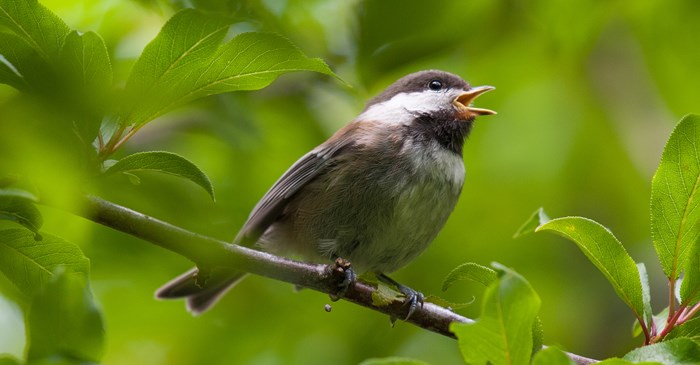The sounds birds make can be placed in two broad categories: songs and calls. Songs are melodious and associated with establishing territory as well as courtship. Calls, on the other hand, are part of a bird's work-a-day language. Boiled down, these calls are used to relay shorter, more urgent messages to one another.
Scolding calls: Birds are territorial and are known to squawk and scold when an intruder (or rival) gets too close to a mate or nesting site.
Location calls: Songbirds emit chirps, cheeps and squawks to other birds to keep tabs on each other. You’ll hear these from nesting pairs, in flocks that are foraging for food, as well as in migrating flocks in the air.
Alarm calls: It’s a wild world out there, so perhaps it’s not such a great surprise that songbirds, when a common threat is near, will look out for each other so they can evade danger from birds of prey. Songbirds have two methods of doing this.
When songbirds spot a bird of prey perched in a tree, they’ll issue a loud alarm. It is said that up to 50 species will respond to a Black-capped Chickadee's call to mob and attack. As word spreads faster than wildfire, some will flock up and dive-bomb the bird of prey. Why would these small birds do this? One theory is the hunting conditions are now more challenging, so the large bird will leave in search of a new "blind."
Then there's a higher-level red alert. If a bird of prey circles overhead, songbirds will sound a high-pitched “seet-seet-seet” call. It doesn’t travel as far, but birds who hear it will freeze in place until they are sure the danger has subsided.
Get to know the bird sounds in your neighborhood by keeping your bird feeders well stocked. Lyric Wild Bird Food has a variety of high-quality straight seeds and handcrafted, bird-tested blends that will keep them flocking back for seconds.
